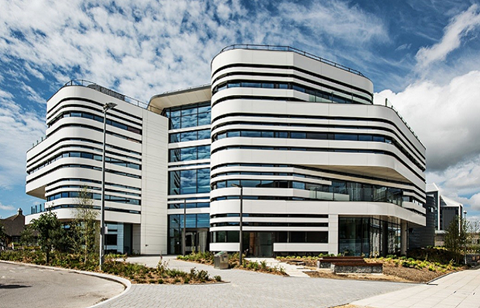
To improve its sustainability, employee wellbeing and social and environmental impact, Bournemouth University has rolled out a fully integrated programme that uses gamification to encourage behavioural change among its 1,800 members of staff.
The 12-month initiative, provided by sustainable reward programme supplier Green Rewards, was fully implemented in January 2018, following 30% take-up of a pilot scheme that targeted four teams, 400 employees overall, in 2017.
Employees are automatically enrolled into certain initiatives, such as recycling waste materials, but beyond that they are able to register for a wide range of activities related to various environmental, wellbeing and health themes, spread across every aspect of the employee experience.
Neil Smith, sustainability manager at Bournemouth University, says: “One of the things we started doing after the pilot was looking at electricity use among the teams, and we started looking at the print data, so we started using that data to award points to teams.”
Core activities that are open throughout the 12-month period include cycling to work, walking at lunchtime, taking the stairs rather than the lift, using a reusable mug and volunteering. Meanwhile, the organisation promotes ad hoc activities, such as photo competitions and coffee mornings, as well as ones that fit within specific monthly themes, such as mental or physical wellbeing, active travel or energy.
“That’s what we like about the programme, it can be kept really fresh and the team reacts really quickly, so we might spot something in the national press and we can offer points for people to get involved,” says Smith.
Once an employee has registered for the activities of their choice, they receive a weekly email, through which they can report their progress.
This progress is then calculated into points each week. Every month, the top four employees on the individual leaderboard win a prize, as does the individual with the biggest margin of improvement. Prizes for these individuals might include a month’s free bus pass, or a month’s gym membership.
There is also a monthly raffle, which gives out 15 smaller prizes, such as reusable bottles or catering vouchers. “Not everybody is going to be able to cycle 50 miles to work, but that really helps to keep people interested,” Smith notes.
After a six-month period, the team with the highest average score is allowed to vote for their favourite out of a choice of five charities, in order to award the winning charity a prize donation. The university donated its most recent team prize, £100-worth of food, to Bournemouth Food Bank on Tuesday 11 September 2018.
“We’re always on the lookout for changes to the prizes,” says Smith. “Keeping it fresh, changing things and giving new incentives, because the platform is so flexible, whereas other initiatives tend to be set out at the start and tend to be quite constraining and frustrating.”
The bulk of the workforce, Smith notes, is willing to change their behaviour, but needs some encouragement and a value proposition to do so.
“We were looking for a mechanism to engage with that group,” he explains. “The rewards system fitted really nicely. Basically, rewarding people for doing positive actions. There’s [also] a bit of pride at stake, and we’re tapping into people’s natural competitiveness.
“The other thing for me is that we’re not making it difficult. They could do something really amazing, but this is [also about] the everyday. As a result of that we’ve had engagement figures which frankly we’ve never seen in anything we’ve tried before with our staff."
Read more...
How to motivate employees with effective gamification strategies











